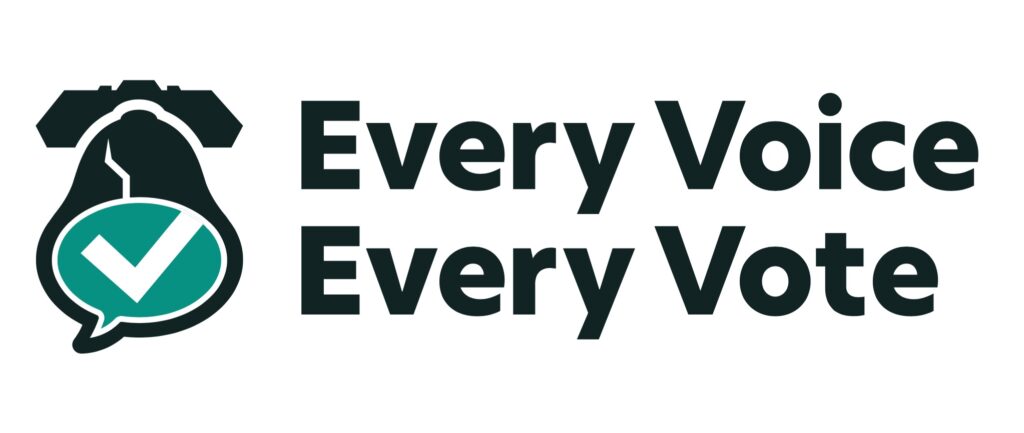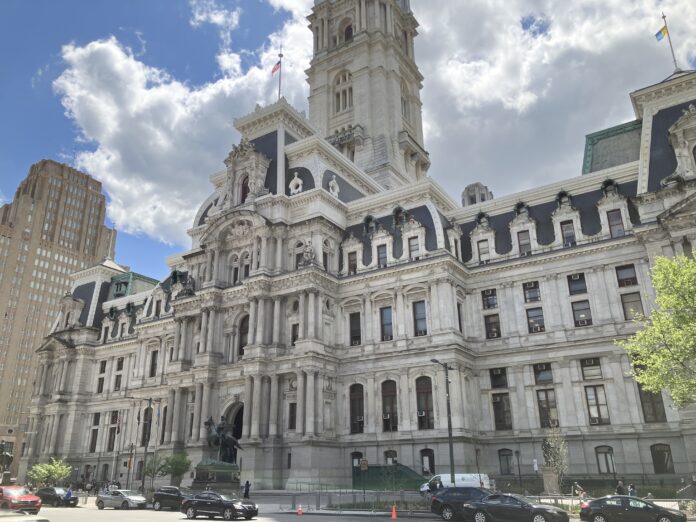Councilmember Rue Landau and the Committee on Legislative Oversight hosted Philadelphia’s first-ever LGBTQ+ Equity Hearing to examine disparities experienced by the LGBTQ+ community on Oct. 29. This hearing, which she hopes will lead to solutions for achieving equity for LGBTQ+ Philadelphians, was planned as part of a package of Pride resolutions adopted this past June.
“Today, we gather not only to acknowledge the progress we’ve made in our city — a city that has long been a beacon of hope and advocacy for LGBTQ+ rights — but also to confront the stark realities that still exist,” said Landau — who is the city’s first openly LGBTQ+ city council member — during her opening remarks.
“This is not just an economic issue,” Landau added, acknowledging that systemic discrimination and inequity continue to affect the LGBTQ+ community in critical aspects of life. “It is a matter of human dignity.”
Landau said she intends to hold future hearings to examine additional issues and topics — but this first session focused on issues related to housing, employment, health care and education.
Health care needs
The testimony of Naiymah Sanchez of the ACLU of Pennsylvania covered a broad range of issues — including employment discrimination, a lack of safety at schools and experiences of conversion therapy. She focused heavily on the need to develop strong policies for protecting LGBTQ+ people.
“Despite significant progress over the recent years towards equality and acceptance, TLGBQ+ individuals still encounter persistent inequalities that hinder the opportunities and equality of life we should all deserve,” she said, intentionally placing the T for transgender at the beginning of the acronym for prominence and visibility. “These disparities are not merely statistical. They represent the lived experience of real people who confront barriers in various aspects of our daily lives — including here in Philadelphia.”
Sanchez spoke about health-care discrimination and the lack of access to truly competent care, urging leaders not to simply advocate for inclusive policies but also to hold facilities accountable for not providing adequate care.
“There’s no set standard of care by any medical society or accrediting body for what it means to be LGBTQ-affirming or culturally-responsive — leaving it to individual providers to self-designate as LGBTQ-friendly in quotes, without any kind of formal process or monitoring to ensure they have the requisite knowledge and skills,” added Rose Thomas of Penn Medicine. “This lack of standardization results in care that can be inconsistent and at times harmful.”
Thomas noted that Penn Medicine has developed an internal system for evaluating this standard of care and hopes it can be used across the industry to establish best practices.
Jazmyn Henderson, a Black, trans woman, added that the Parker administration “has gone on an attack against people who are addicted to opiods,” describing their efforts as preventing overdose prevention efforts and trying to shut down safe syringe-exchange programs.
Henderson, who previously worked at Prevention Point, explained that syringe-exchange programs also serve trans people who rely on the needles provided by those sites to take gender-affirming medications.
Sultan Shakir of Mazzoni Center explained that the care the organization provides relies on funding partnerships — including with city and state governments. He underlined that being reimbursed in a timely manner has been an ongoing issue — noting that at one point, the organization had advanced $600,000 in care and struggled to pay employees due to difficulty receiving city reimbursements.
“Continued delays in funding and reimbursements are having significant negative impacts on our and other organizations — undermining our ability to sustain life-saving services and to advance health equity to our community members,” he explained. “So we ask for partnership and follow-up in resolving these ongoing challenges.”
He also requested that the city increase the ways they support the organization in security — as the center has been targeted by right-wing violence. Shakir suggested hiring a new joint security officer that local organizations could share.
He noted the need for more coordination, better security and training, and stronger infrastructure — highlighting that it’s been difficult to identify which security professionals and personnel have both LGBTQ+ competencies and security expertise.
“This cultural competency is particularly important given that we work with individuals who have often experienced trauma — often trauma including law enforcement,” he underlined.
Education and school safety
“I remember the excitement of starting high school — filled with hopes and dreams,” said Hazel Edwards of Galaei. “I wanted to learn, grow and find my place in this world. However, I soon encountered a harsh reality. The very environment that was supposed to nurture my education became a battleground for my identity.”
Edwards explained that she faced hostility and bullying from peers and faculty members, which she attributes to the lack of a clear policy for supporting trans students. Even her guidance counselor refused to acknowledge her authentic gender identity. She left high school before finishing, which resulted in homelessness.
“When schools fail to provide adequate support for LGBTQ+ youth, the consequences extend far beyond the classroom,” she emphasized — calling the interconnectedness of education disparities with other critical aspects of life a “domino effect.”
Although she praised the recently implemented Policy 252 — which aims to protect trans students in Philadelphia, she noted that the policy is inconsistently applied and enforced and that lower-income schools have inadequate funding to hire competent staff or support youth as they attempt to uphold the policy.
Edwards noted that there was only an initial training on Policy 252 in 2016 and hasn’t been one since. She urged for continued training moving forward. Jasper Liem of The Attic Youth Center noted that even Policy 252 is incomplete — as there is no current school policy that protects LGB+ students from being outed. The policy is specific to trans students.
“It’s great to refer folks to us,” replied Liem to a comment about school officials needings to become more familiar with organizations that serve LGBTQ+ youth. “Our doors are always open for our LGBTQ youth in Philadelphia — and at the same time, they should have that same safety and equity in their schools.”
A housing crisis
Liem underlined that LGBTQ+ youth have been told they will not be safe or welcome at emergency housing shelters.
“We need systemic change to ensure that every LGBTQ youth can access stable and affordable housing every night, too many of our youth are left vulnerable and exposed,” Liem said. “We cannot stand by while they fall through the cracks of a broken system.”
But it’s not just youth who are struggling to find housing. Many of the community members who offered testimony noted having struggles to find safe housing at some point in their lives.
Monica, a trans woman who spoke up during public comment, said she came to Philadelphia seven months ago after being released from prison when a Bucks County liaison told her there were no housing options from her in that area. She was told to come to the city to register at a homeless shelter or sleep in the park. She underlined that the lack of stable housing has impacted her ability to find a job.
Monica emphasized the need to work more closely with collar counties and better collaborate to make sure housing and jobs are more accessible.
Employment discrimination and access issues
Henderson also shared the challenges she’s faced as a job-seeker. As a mechanic with 30 years of experience, Henderson has been denied full-time work and offered minimum wage. She highlighted that Philadelphia has no shops that are owned by women and gave a variety of reasons for believing she’s been discriminated against because she is trans.
Henderson explained that employers often find loopholes to anti-discrimination laws, giving unreasonable job offers that trans applicants would not accept. For instance, an employer might offer low wages or ignore scheduling needs in order to claim that a job has been offered even though that job would not be practical for the trans applicant.
“I would say there are grounds that you’ve been discriminated against, and [filing a complaint is] not just for your own benefit but for the benefit of people that will come after you,” Councilmember Curtis Jones, Jr. explained.
Landau later explained that employment denial can include being offered an unreasonable wage or schedule. She also noted there’s more the Philadelphia Commission on Human Relations can do to ensure this stops — but that filing a complaint is the first step. A notice can be sent to a business that discriminates, educating employers of the law and warning them of tangible consequences should this happen again.
Liem explained that many LGBTQ+ people find work in queer-specific organizations not because it’s the industry or work they choose but because they lack other options. He emphasized that LGBTQ+ people deserve more choice.
Education at City Hall
A dialogue emerged with Councilmember Jones about the importance of filing complaints following Henderson’s testimony about employment discrimination.
Jones fumbled with language about LGBTQ+ identity, asking, “What makes you feel that because of your preference that they’re not allowing you to work to your fullest capacity?”
Sanchez later corrected Jones by stating that being trans is not a preference.
“That’s who we are. The preference is to wear that blazer for today, okay? We are who we are,” she said, before explaining that nondiscrimination ordinances pertaining to jobs are not well-enforced.
“There is this misunderstanding that we as community members — TLGBQ+ Pennsylvanians and Philadelphians — have a preference [for LGBTQ+ identity]. We would prefer to be respected,” she added, noting that committee members and other leaders expand their understanding and their language as it pertains to the queer community.
When Jones replied, he misgendered Henderson and cut off community members who attempted to correct him — resulting in palpable tension in the room.
“I didn’t mean to offend,” Jones added. “I’m here to learn.”
“We clearly have a lot of work to do educating my body, and I will take the forefront of doing that,” Landau said while apologizing on behalf of City Council. “I want you to know that I will absolutely take the initiative to make sure that I am educating as much as needed here in City Council.”

